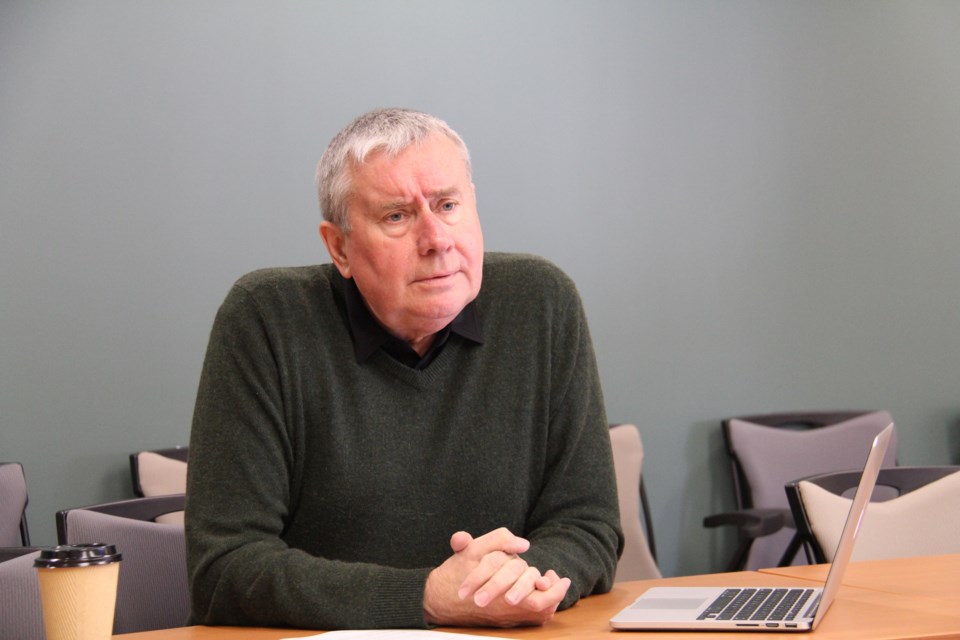Ontario hospitals are over-crowded and under-funded compared to other provinces, a situation that will only get worse if Premier Doug Ford and his Progressive Conservatives cut four per cent from health care spending, warns a hospital union.
Ford promised before the June 7 election a Tory government would put an end to hallway medicine – a system in which patients are placed in beds and gurneys in hallways, television rooms, shower rooms and even linen closets because of a shortage of beds.
Just last week, Ford appointed PC health advisor Dr. Ruebin Devlin to lead the premier’s council on improving health care and ending hallway medicine. Devlin, a former chief executive officer of Humber River Hospital, will be paid $348,000 annually and have three years to come up with solutions to ease hospital over-crowding. All the while, Devlin will collect an annual pension of $300,000 from his hospital days.
The Ontario Council of Hospital Unions, the hospital division of the Canadian Union of Public Employees, is far from confident Devlin and the Tories will be able to fix a system the union says is seriously underfunded.
Ontario hospitals are among the most efficient in Canada, but they are also among the worst funded, OCHU president Michael Hurley said during a stop in Sudbury on Monday.
The union released a report called “Hallway Medicine: It Can Be Fixed”, a provincial report containing specifics related to Sudbury’s hospital.
Ontario has the lowest cost standardized hospital stay in Canada — $5,360 compared to the national average of $5,992. Shockingly, perhaps, the cost of a standardized hospital stay at HSN is $4,974 — more than $1,000 below the national average and $300 less than the Ontario rate. Teaching hospitals, which HSN is, have a standardized hospital stay cost of $6,428.
HSN serves all of northeastern Ontario, treating a population with higher than average rates of cancer, diabetes, heart disease and addiction, all with less money than many other hospitals in Ontario are receiving, said the union.
At the same time, HSN has a very high occupancy rate. It is often 100 per cent and in January rose to 116 per cent. Health experts in Great Britain say an occupancy rate over 85 per cent in hospitals is considered unsafe and has two major consequences, said Hurley. It “waters down” the time employees have to care for patients and can lead to a greater prevalence of hospital-acquired infections.
Not surprisingly perhaps, given the over-crowding, Ontario hospitals have among the highest rates of C. difficile, a bacterium that can lead to serious bowel infections and even death.
OCHU is warning that, if the Tories live up to election promises to trim four per cent of spending and implement a $7-billion personal tax plan, hospitals will be the casualties. Those cuts could cause HSN to lose up to 58 hospital beds and as many as 300 employees.
HSN is already facing financial pressures, with a forecasted $4.9-million deficit for 2018-2019, based on a plan to trim another 51 unionized positions from a work force of more than 3,000 employees.
OCHU is calling on the PC government to rethink any spending cuts “and to really put its mind to what would be needed to deal with hallway medicine,” Hurley told reporters at a news conference Monday at the Mackenzie branch of Greater Sudbury Public Libraries.
“We probably don’t need more advisors,” said Hurley in reference to the hiring of Devlin. “We probably need people who are actually delivering health care as a solution to hallway medicine.”
Dave Shelefontiuk is president of CUPE 1623, which represents about 1,150 employees working in clerical and service departments at HSN.
Fixing hallway medicine is “easier said than done,” said Shelefontiuk, who has worked in the city’s hospital system for more than 30 years.
“We have the least capacity, we have the fewest beds, the fewest number of staff, yet we’re still the best performing hospitals in Canada,” said Shelefontiuk.
Both Shelefontiuk and Hurley spoke about the need for more funding to treat people suffering from mental health illnesses and addiction.
Hurley said the Tories must accept the fact hospitals are under-funded and fund them at their real costs. That would require an increase of more than five per cent – 2.2 per cent for inflation, including another one per cent each to treat an aging population and also a growing population.
“We don’t have enough hospital beds,” said Hurley, and spending on home care and mental health and addiction services is insufficient to offset that.
Hospitals began to encounter problems with funding in 2006 when Dalton McGuinty was premier, said Hurley. That is when “the taps (started) being turned off in a real sense with funding.”
Ontario hospital funding is about $400 less per patient annually than other provinces “and we’re significantly lean,” said Hurley.
(Do you have a story about how hospital under-funding has affected you or a loved one? Contact Carol Mulligan at [email protected].)
